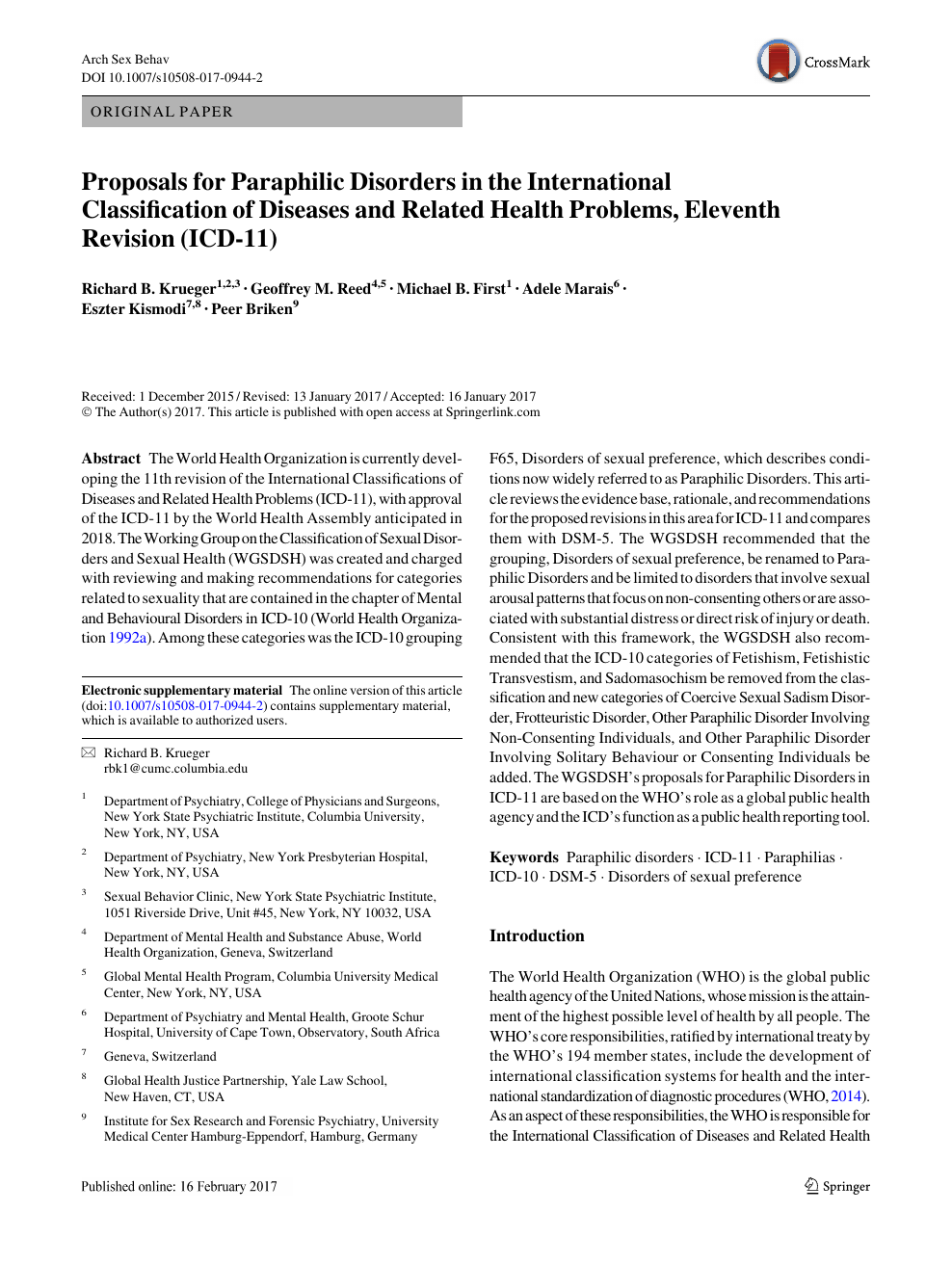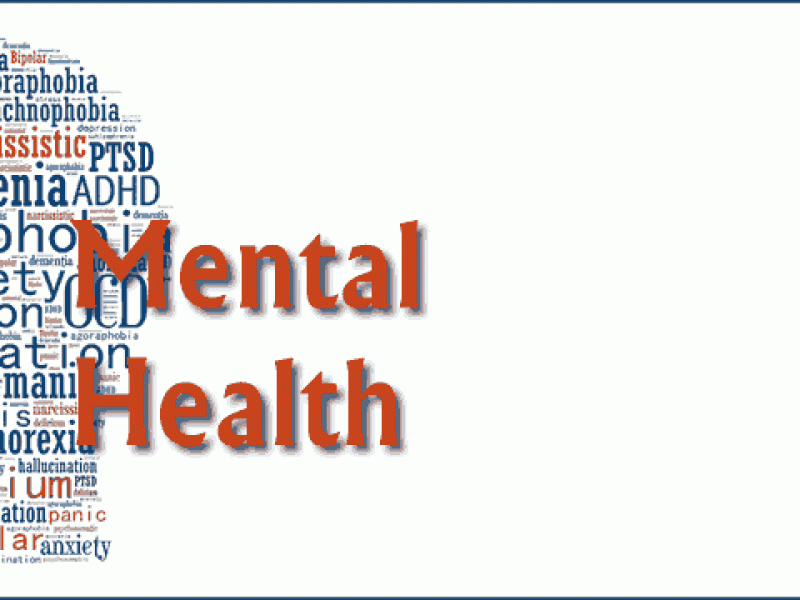
First, consult a doctor if your concern is that your child or family member may have mental health issues. A physical examination can rule out physical illness. A visit with a mental professional will include an assessment and interview. The mental health professional will assess the patient and determine if there are any symptoms or severe conditions. Intervention may be needed if there's concern among family members or friends.
There are many treatment options
Although a primary care provider is qualified to treat mild to moderate mental illness, it's not able for patients with more serious conditions. A patient can be helped by psychotherapy or other treatments to overcome mental health problems. The best treatment options for each patient depend on their medical history, severity, and individual circumstances. Those with severe mental disorders may need psychiatric hospitalization or intensive outpatient care. The situation and individual's responses to treatments will determine which type of treatment is best.
Language barriers
In the United States, it is becoming increasingly difficult for refugees and immigrants to get health care. About 40% of the total population was foreign-born in 2010. Twenty-five million of these individuals spoke limited English, which is about nine percent of the population. It is clear that language barriers can make it difficult for people to get the care they need. These people are also often limited in income and face additional challenges when trying to navigate the health care system.

Implicit bias
Implicit bias is a key factor in creating disparities in mental healthcare, especially for marginalized populations. This has been known since long. New research suggests that implicit bias among providers of mental health care may be more widespread than previously thought. These biases are unconscious and activate automatically when practitioners interact with clients. These biases can affect access and treatment outcomes. They are especially dangerous when they intersect with the criminal justice or mental health systems.
Pandemic's Impact on Mental Health
Concerns have been raised about the impact of COVID-19 on mental health and substance abuse. A survey conducted in early 2020 found that 41% of adults reported symptoms of anxiety or depressive disorder. This stress has increased suicide attempts and substance usage among these individuals. Alarmingly, 11% reported having thought of suicide within the last 30 days. The Pandemic could lead to an increase in suicide rates.
Suicide rates
Suicide is a global problem. Over 703 000 Americans commit suicide each year. Suicide can have a profound effect on families, communities, and countries. It affects people of all ages, including children and adults. Suicide is the fourth-leading cause of death among individuals aged 15 to 29. Suicide is a serious problem worldwide. In 2017, 77% suicides took place in low- or middle-income nations.

FAQ
How can I prevent mental health issues?
It's not always easy to prevent mental illness. Here are some points to keep your mind clear:
-
Don't drink alcohol. Alcohol can affect your moods and increase your risk of depression.
-
Avoid drugs. Avoid using drugs.
-
Get enough sleep. Sleep deprivation can make you feel anxious and depressed.
-
Exercise regularly. Exercise releases endorphins which can make you happy.
-
Eat healthy foods. You can feel tired and unmotivated if you eat junk food.
-
Spend quality time spending it with loved ones. It can be a great way to improve your mood.
-
Have fun. Have fun and explore new things.
-
Take breaks from social media. Social media sites can make it difficult to feel alone and lonely.
-
Be kind to yourself. Treat yourself nicely, even if you aren't feeling great.
-
Ask for help. Ask for help if it's difficult to cope. Talking to a friend or family member can help.
-
It's okay to let go. Crying helps release tension and stress. It doesn’t mean something bad happened.
-
Keep busy. Do something that you love.
-
You should practice good hygiene. Bad hygiene can make it difficult to feel attractive and clean.
-
Keep in touch. Staying connected with others can help you remain positive.
-
Learn how to relax. Relaxation techniques like yoga and meditation can help you cope better with stress.
-
Find meaning in what you do. You can find fulfillment in your hobbies and work by finding meaning.
-
Keep your eyes on the present moment. When you focus on the present moment, you won't worry so much about the future.
-
Set goals. You can set goals to motivate yourself to reach them.
-
Do something nice for yourself. It can increase self-esteem to do something nice for yourself.
-
Practice gratitude. Gratitude can help you appreciate all the good things in your life.
-
Volunteer. Volunteering is an enjoyable way of spending time and making a difference in this world.
-
Give back. Giving back can help you feel fulfilled.
-
Be aware of warning signs. Don't be afraid to ask for help if your behavior changes.
What causes mental health problems in adolescents
Adolescence is when we develop our identities. As individuals, we start to understand who we are and where we fit in the society.
This is a time when we make new friendships and have romantic relationships. These experiences can lead to stress.
Although stress is natural, it's important to seek treatment if you are experiencing excessive stress.
You might think you can handle things independently, but sometimes, you need someone else to talk to.
During times of stress, your family members and friends can be there for you. You can also learn strategies to manage stress from your friends and family.
For example, you could take up exercise or meditation. Both of these activities can help you reduce stress.
In addition, you could join a group such as a sports team or church. You will make new friends and meet new people.
How does mental well-being affect daily life?
At some point in our lives, everyone is susceptible to mental illness. The only difference between someone with mental illness, and those without, is the fact that they do not seek help. Talk to someone about something you are feeling. There are many treatment options available for anxiety, depression and stress.
What can you do if you are experiencing mental health issues
When you have any kind of mental health problem, it's important to seek treatment. You may have been subjected to trauma or abuse. This could have affected your perception of yourself.
An eating disorder, addiction, and other mental illnesses could also be a problem. These disorders can cause serious damage to your life.
You should not attempt to resolve them by yourself. Instead, you should talk to someone who knows what they're doing. A professional therapist will be able to provide you with the support and guidance that you need in order to overcome these problems.
Statistics
- It does have some influence, but not nearly as much as we might think, so focusing less on attaining wealth will likely make you happier (Aknin, Norton, & Dunn, 2009); (positivepsychology.com)
- According to the National Alliance of Mental Illness (NAMI), one in five Americans experiences mental health issues which translates to more than 40 million adults a year. (doctorondemand.com)
- Similarly, while there is some agreement about the boundaries of typical mental disorders 2, there is likely less agreement about those for positive mental health. (ncbi.nlm.nih.gov)
- In any given year, an estimated 18.1% (43.6 million) of U.S. adults ages 18 years or older suffered from any mental illness, and 4.2% (9.8 million) (healthypeople.gov)
- More than 40 million adults in the United States have an anxiety disorder, but less than 37% of people seek mental health treatment for their symptoms. (talkspace.com)
External Links
How To
How To Determine If One Needs To Ask For Help From A Mental Health Expert
You should look out for signs that indicate that you might need professional assistance to determine if your problem needs to be addressed. You should consult a doctor immediately if you see any of these warning signs.
-
It's as if you feel out of control.
-
You have trouble sleeping.
-
Concentration can make your mind race.
-
You begin to consider suicide.
-
You feel helpless.
-
You feel like life isn't worth living.
-
You are not interested in the same things that you used to love.
-
You've stopped eating.
-
You have become withdrawn.
-
You're using drugs and alcohol to deal with stress.
-
You have begun to lose friends or family members.
-
Other symptoms may include stomachaches, backaches or headaches.
In conclusion, if you notice any of these signs, then it is crucial for you to see a doctor right away.